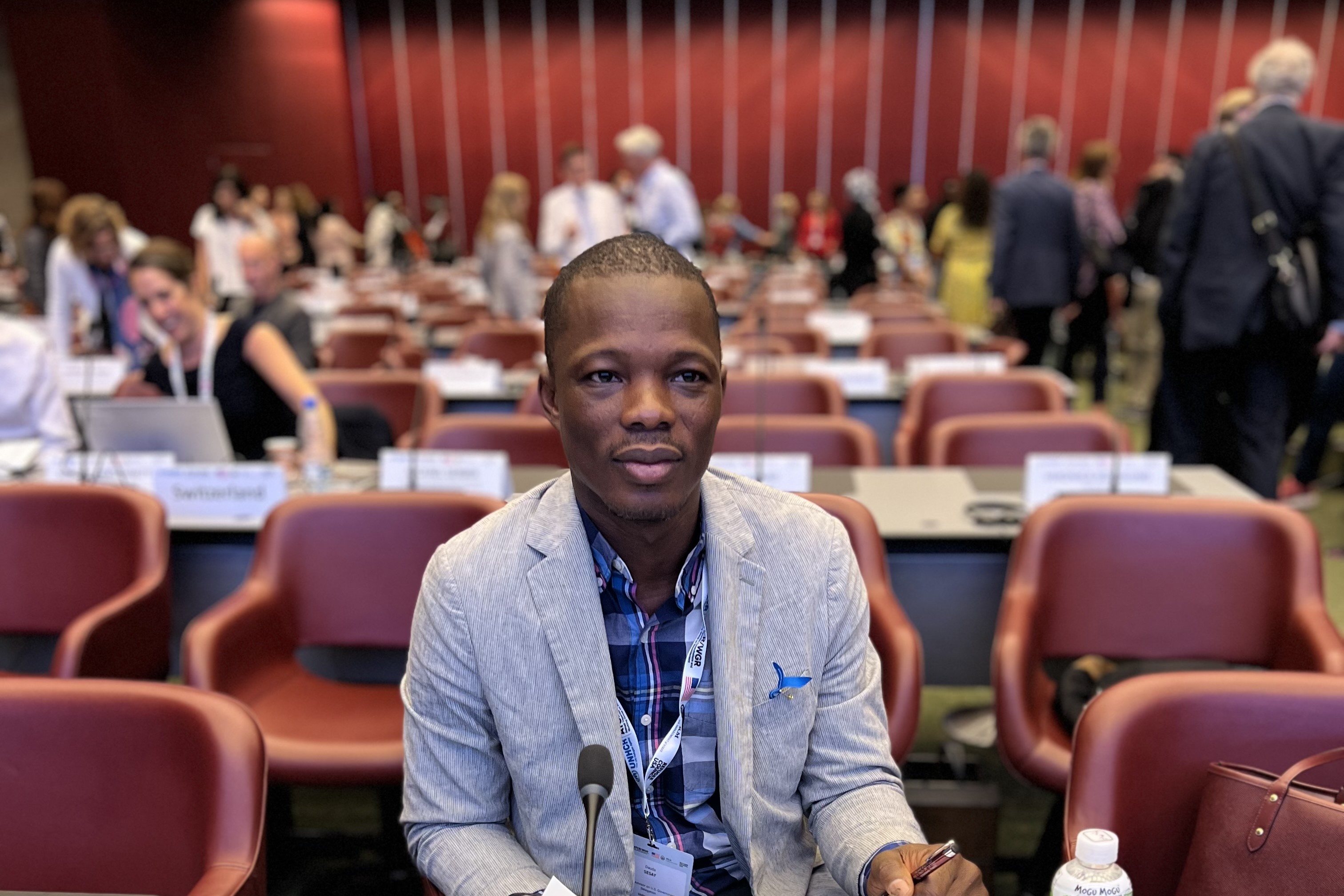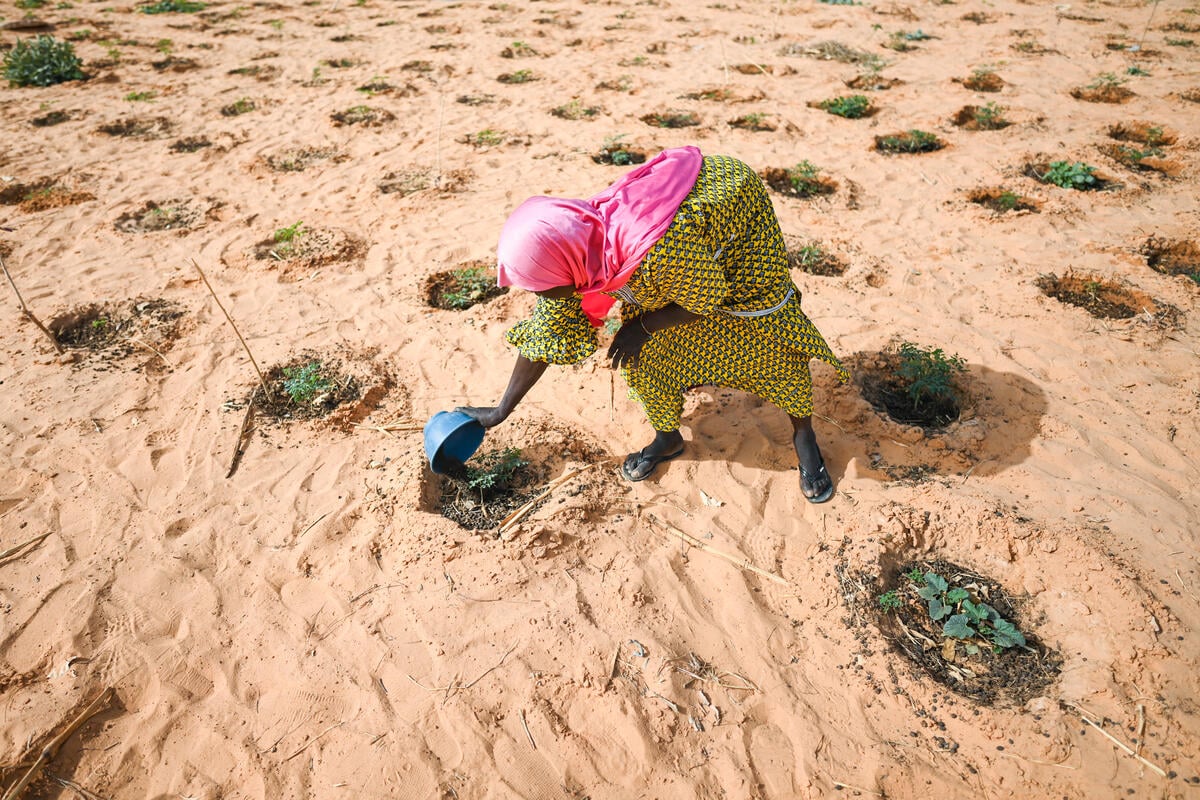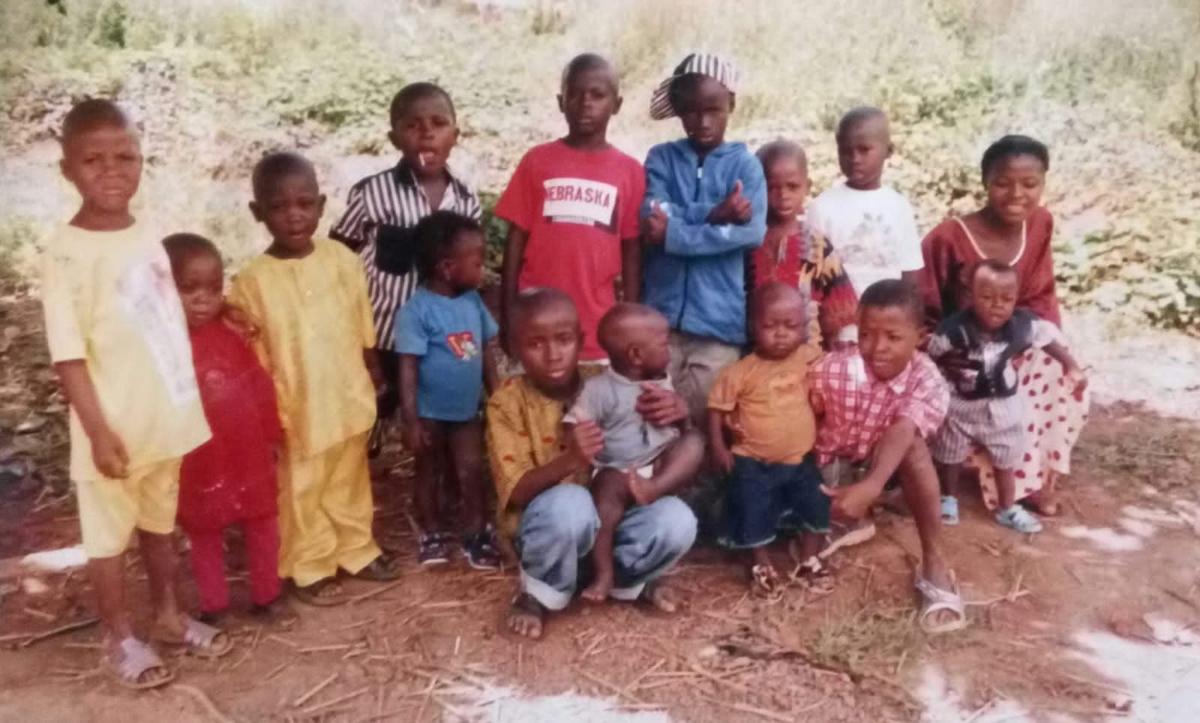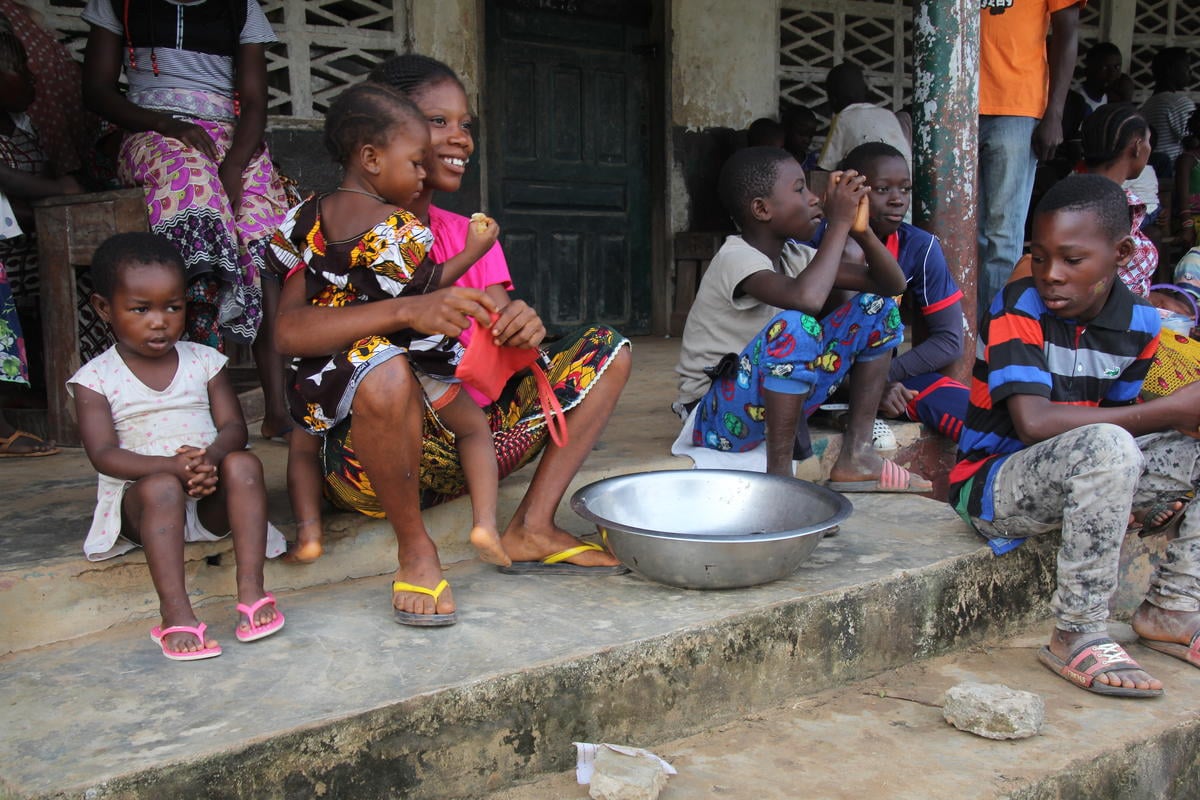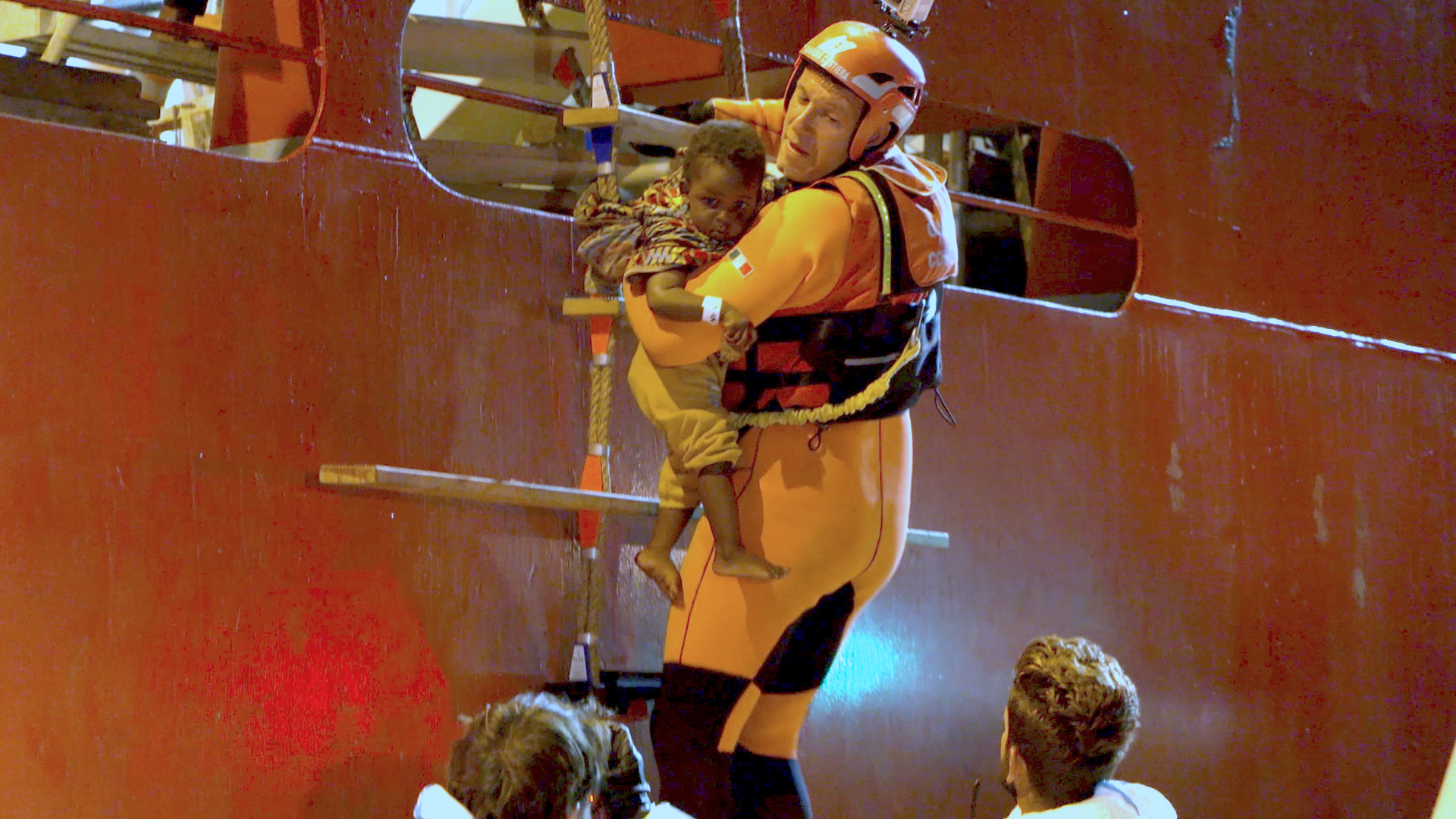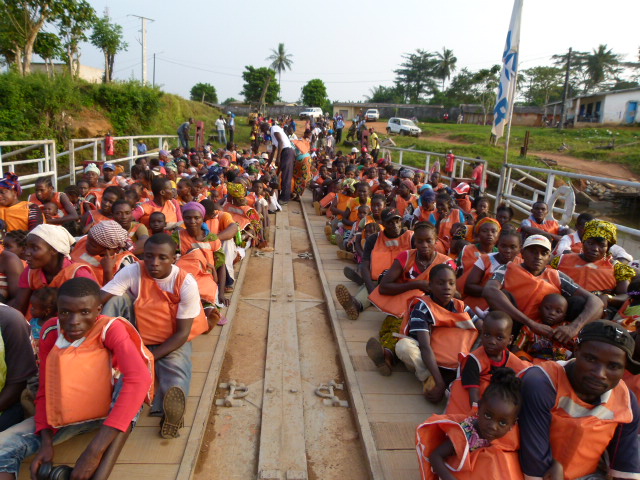Guinea Update: UNHCR team reaches isolated refugees
Guinea Update: UNHCR team reaches isolated refugees
For the first time in weeks, a UNHCR security team has reached a volatile border area in southern Guinea, where humanitarian agencies estimate as many as 250,000 refugees and displaced people are in urgent need of food and medicine.
The UNHCR team was able to travel Wednesday and Thursday to isolated border areas in the so-called "bec du perroquet" (parrot's beak) west of the southern town of Guéckédou. The thumb of Guinean territory jutting into south-eastern Sierra Leone houses dozens of refugee camps that UNHCR had been unable to reach since a series of rebel attacks in the region in early December. Thousands of refugees fled to Guinea's interior, but tens of thousands more remained stranded in the strife-torn border area.
The UNHCR team, which returned to the Guinean capital, Conakry, on Friday evening, reported they were able to visit several of the larger camps in the area, including Kolomba at the westernmost point of Guéckédou prefecture. They estimated there were now 36,000 people in the camp, or about 50 percent more than the previous registered population. Sierra Leonean refugees said they fled to Kolomba from camps further to the north that were emptied during the December rebel attacks. There were also many displaced Guinean citizens in Kolomba.
Humanitarian agencies estimate there could be 70,000 displaced Guineans and 180,000 Sierra Leonean and Liberian refugees in the region, many of them in desperate need of help.
Limited UNHCR return likely
Although still under analysis, the initial assessment by the security team indicates that UNHCR will likely be able to resume its activities in the Guéckédou area as long as staff return each day to the town of Kissidougou, a journey of up to four hours each way. UNHCR will travel in the area only under military escort. The assessment suggests that it is still too insecure to re-establish the UNHCR office in Guéckédou, which was burned along with UNHCR equipment in early December, forcing the agency's withdrawal. In September, a UNHCR staff member was killed in Macenta, west of Guéckédou.
The UNHCR team also spoke with refugees in Nongowa, Wendekenema and Fangamadou camps in the "bec du perroquet" area. Many refugees, chanting "we want to go home," pleaded for repatriation to Sierra Leone as soon as possible. Some said they had been prevented by Guinean military forces from moving deeper inside Guinea. Others said they came to the "bec du perroquet" area from now abandoned camps such as Katkama and Bodou, which had been in the path of rebel attacks. Some complained to UNHCR that they had to give camp leaders money in order to be registered as new arrivals.
The presence of Kamajor militia, who oppose Sierra Leone's RUF rebels, was especially noticeable in Kolomba, which is just a few kilometres from the border. On Friday morning, artillery fire could be heard south of Guéckédou, in the area where the Liberia, Sierra Leone and Guinea borders meet.
Urgent need for medical supplies
Although UNHCR's medical stockpiles in Guéckédou were looted, the team found one store of emergency medicine intact and were able to distribute it to the refugees. The looted stocks included urgently needed kits for the treatment of cholera - a constant danger in the region - as well as malaria medicine, medical supplies and other items that could take weeks to replace.
The refugees said they had to forage for food after running out of supplies distributed by aid agencies in the autumn.
In Kissidougou, the Catholic diocese has offered to help with food distribution in the camps and hard-hit areas of Guéckédou prefecture. UNHCR now has five trucks from the German agency, GTZ, on standby in Kissidougou for food distribution.
In the Kissidougou region, 75 kms north of Guéckédou town, there are also worrying health signs among refugees in camps to which aid agencies now have access. A survey of 1,000 people in Massakoundou, 8 kms west of Kissidougou, showed 130 refugees suffering from moderate malnutrition and seven others severely malnourished. Severe diarrhoea and measles have also been reported in the region.
Returns to Sierra Leone
Provisional data on returns to Sierra Leone since September shows that at least 38,500 people have crossed back to government-held areas from Guinea. This includes more than 10,000 who have worked their way overland and by small boat directly to Lungi province, and another 28,867 who have returned to Freetown by sea.

